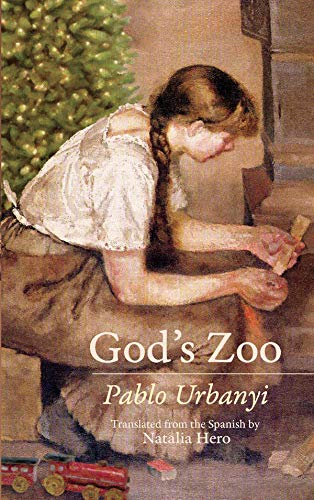God’s Zoo / El zoológico de Dios
Fenix, in his own words, was conceived in a bed in Czechoslovakia and born in the same bed in Hungary. In 1938, Hungary reclaimed lands from Czechoslovakia lost in WWI. It is now WWII: first the Germans arrive in Fenix’s Hungarian village, then the Russians arrive. This is a poignant and deeply affecting novel of Fenix’s reminiscences of his life growing up within this world of war. Fenix muses: “travelling to the past… the traveller will find more stones than diamonds lost in the meanders of the soul.” In prose so rich and full of meaning, the reader must slow down to savor and re-read as Fenix digs up “stones” and “diamonds.”
Urbanyi writes of the cleansing done by Germany as they hunted down their prey. “If by chance one of these prey had managed to have [a soul], …[it] was ethereal, and through the chimneys, it would ascend to the highest heights without the members of humanity hearing a cry of pain.” Open eyes, the eyes of the dead, appear throughout the novel. Fenix recalls the many open eyes he has seen.
Fenix’s mother was completely self-absorbed and very cruel to him. The objects around her meant far more to her than humanity. His father was distant, ignoring Fenix on the rare occasions he was at home. The young maid Judit took over the care of Fenix from his birth. He loved her as “his lover, his sister, his mother.” The lover piece of this relationship is problematic, and reading about the sexual play between the two is disturbing. I tried but failed to justify it within the literary context of the novel. With this caveat, the phenomenal writing and translation make this an exceptional read. It is a novel that provides levity then delivers an emotional gut punch.










